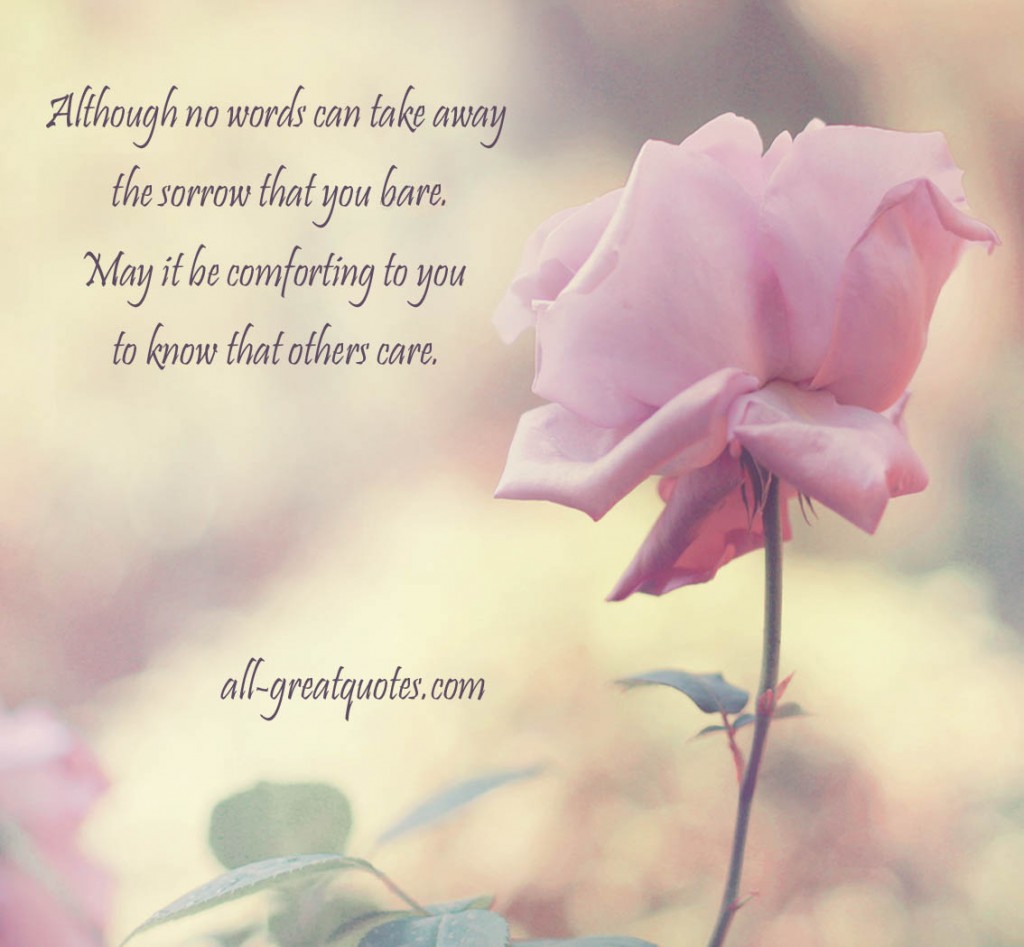Losing a mother is one of the most heart-wrenching experiences anyone can go through. It's like losing the anchor that keeps your life steady, and it leaves behind a void that feels impossible to fill. When someone you care about is grieving the loss of their mom, finding the right words of sympathy for death of mother can be incredibly challenging. You want to say something meaningful, but you're afraid it might come off as cliché or even hurtful. But hey, that's why we're here—to help you navigate this delicate situation with grace and empathy.
We’ve all been there, standing awkwardly at a funeral or sending a message to a friend, unsure of what to say. The truth is, there’s no perfect script for this kind of moment, but there are ways to express your condolences that feel genuine and supportive. This article will walk you through everything you need to know about offering words of sympathy for the death of a mother, from understanding the grieving process to crafting heartfelt messages.
Whether you’re looking for short phrases, longer letters, or even ideas for actions you can take to support someone in mourning, we’ve got you covered. Let’s dive into how you can be there for someone during one of the toughest times of their life, because sometimes, the right words can make all the difference.
Read also:What Happened To King Von A Deep Dive Into The Rise And Tragic Fall
Understanding the Grieving Process
Why is Grieving the Loss of a Mother So Difficult?
When a mother passes away, it’s not just the loss of a person—it’s the loss of a role, a presence, and often, a best friend. For many, moms are the emotional center of the family, the ones who hold everyone together. Their absence creates a ripple effect that touches every aspect of life. Understanding why grieving the death of a mother is so hard can help you empathize better with someone who’s going through it.
- Emotional Depth: The bond between a child and their mother is deep and complex. It’s built on years of shared experiences, love, and support.
- Role Transition: Losing a mother means taking on responsibilities she once handled, which can be overwhelming.
- Identity Loss: Many people define themselves in relation to their parents. Without a mother, there’s a sense of losing part of your identity.
Stages of Grief: What to Expect
Grief isn’t linear; it’s more like a rollercoaster with ups and downs. Here are some common stages people might experience after losing their mother:
Denial: At first, it might feel like this isn’t really happening. Denial is a natural defense mechanism.
Anger: Why did this happen? Why now? These questions can lead to feelings of anger and frustration.
Bargaining: People often find themselves thinking, "If only I had done something differently." This stage involves reflecting on what could have been.
Depression: Sadness sets in as reality sinks in. This is where the weight of the loss feels heaviest.
Read also:Kaitlan Collins Husband The Inside Story You Need To Know
Acceptance: Eventually, most people reach a point where they accept the loss and begin to rebuild their lives.
Words of Sympathy for Death of Mother
Short Phrases to Express Condolences
Sometimes, less is more. Here are some simple yet powerful words of sympathy for death of mother that you can use:
- “I’m so sorry for your loss. She was truly one of a kind.”
- “My heart goes out to you during this difficult time.”
- “She will always be remembered for her love and kindness.”
- “You and your family are in my thoughts and prayers.”
- “I can’t imagine how hard this must be, but I’m here for you whenever you need me.”
Longer Letters for Deeper Support
If you want to go beyond a quick phrase, writing a heartfelt letter can provide immense comfort. Here’s an example:
Dear [Name],
I was deeply saddened to hear about the passing of your mother. She was such an incredible woman, full of warmth and wisdom. I know how much she meant to you, and I want you to know that I’m here for you in any way you need. Whether it’s just talking, sharing memories, or simply sitting in silence, I’m only a call away.
Her legacy lives on through you, and I’m sure she’d be so proud of the person you’ve become. Please take care of yourself during this tough time. You’re not alone in this.
With love,
[Your Name]
Common Mistakes to Avoid
Saying the Wrong Thing
While your intentions might be good, certain phrases can unintentionally hurt. Here are some things to avoid:
- “At least she’s in a better place now.”
- “Time heals all wounds.”
- “You’ll get over it eventually.”
- “I know exactly how you feel.”
Instead, focus on being present and listening without judgment. Sometimes, silence speaks louder than words.
Actions Speak Louder Than Words
Practical Ways to Support Someone
Offering words of sympathy for death of mother is important, but actions can also speak volumes. Here are some practical ways to support someone in mourning:
- Bring over meals or groceries.
- Offer to help with household chores.
- Check in regularly, even weeks or months later.
- Send a thoughtful gift, like a sympathy card or flowers.
Cultural and Religious Perspectives
Respecting Different Beliefs
It’s essential to consider cultural and religious beliefs when offering condolences. Some cultures may have specific rituals or traditions surrounding death, and respecting these can show sensitivity and understanding. For instance:
- In Christianity, mentioning prayers or faith can be comforting.
- In Judaism, sitting shiva is a traditional mourning practice.
- In Hinduism, performing last rites and offering prayers are common.
Children and Grieving
Talking to Kids About Loss
Losing a mother is especially tough for children. They may struggle to understand what’s happening and how to cope. Here are some tips for talking to kids about loss:
- Be honest but age-appropriate.
- Encourage them to express their feelings.
- Reassure them that it’s okay to feel sad.
- Involve them in memorial activities if they wish.
Creating Meaningful Memorials
Ideas for Honoring a Mother’s Memory
Memorializing a loved one can be a beautiful way to honor their life. Here are some creative ideas:
- Plant a tree or garden in her memory.
- Create a photo album or scrapbook.
- Donate to a charity in her name.
- Write down favorite memories and stories.
When to Seek Professional Help
Recognizing Signs of Complicated Grief
While grief is normal, some people may experience complicated grief, which can interfere with daily life. If someone is struggling to function or shows signs of depression, it might be time to seek professional help. Look out for:
- Persistent feelings of hopelessness.
- Difficulty maintaining relationships.
- Withdrawal from social activities.
- Thoughts of self-harm or suicide.
Conclusion
Losing a mother is one of life’s hardest challenges, but offering words of sympathy for death of mother can make a world of difference. By understanding the grieving process, avoiding common pitfalls, and providing practical support, you can be there for someone in their time of need. Remember, it’s not about having all the answers—it’s about being present and showing you care.
So, take a deep breath, reach out, and let your compassion shine through. Whether it’s a simple message, a heartfelt letter, or a helping hand, your efforts can bring comfort and healing to someone who needs it most. And hey, don’t forget to check out our other articles for more tips on navigating life’s toughest moments!
Table of Contents
- Understanding the Grieving Process
- Words of Sympathy for Death of Mother
- Common Mistakes to Avoid
- Actions Speak Louder Than Words
- Cultural and Religious Perspectives
- Children and Grieving
- Creating Meaningful Memorials
- When to Seek Professional Help



